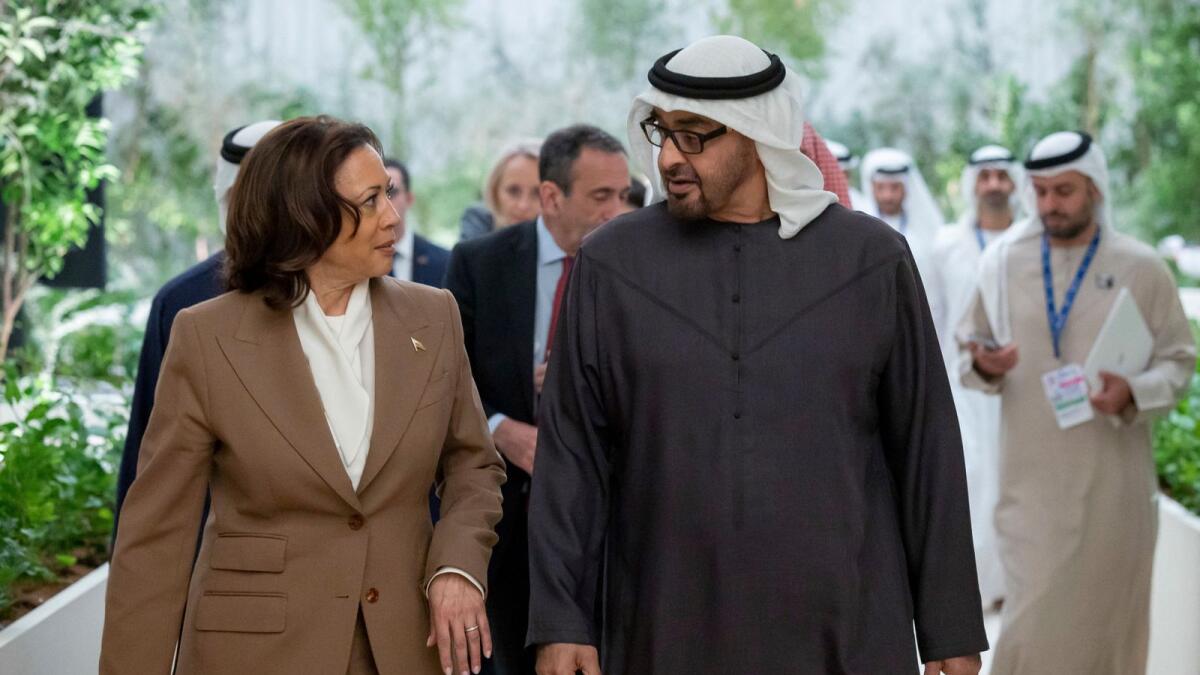As political analysts in the UAE predict the potential outcome of Kamala Harris becoming the Democratic Party’s nominee for the US presidency, they believe that if elected, Harris will play a more active role in addressing humanitarian crises in conflict zones in the Middle East. The UAE has always had a significant partnership in counterterrorism, regional stability, and security, and experts anticipate that Harris will further enhance this strategic partnership, particularly in defense and intelligence collaboration. This could include continuing military sales and joint exercises to ensure the UAE remains well-equipped to counter regional threats.
Furthermore, Harris is expected to focus on expanding economic ties with the UAE, particularly in sectors like technology, renewable energy, and infrastructure. Strengthening existing trade agreements and exploring new ones could also be on the agenda to enhance bilateral trade and investment flows between the two nations. Harris’s visit to Dubai during COP 28 in 2023 highlighted her commitment to being a global leader in the fight against the climate crisis, with a $3 billion pledge to the Green Climate Fund. This aligns with the UAE’s ambitions to diversify its economy and invest in green technologies, fostering sustainable economic growth and innovation.
Regarding the Israel-Palestine conflict, Harris has shown sympathy towards Palestinians and has called for the release of hostages held in Gaza by militant groups. Experts believe that she could be more supportive of the Palestinian cause compared to the Biden Administration. Harris’s stance on the Middle East and US foreign policy towards the region is expected to take a balanced approach while addressing humanitarian concerns and promoting diplomatic solutions. She has called for increased humanitarian aid to Gaza and seeks to balance support for Israel with attention to Palestinian rights and humanitarian needs.
As the possibility of Harris becoming the first female US president looms, political pundits in the UAE see her as the likely Democrat candidate, supported by endorsements from influential figures like Hillary Clinton. Harris’s mixed lineage and stance on various issues, including immigration, could appeal to a broader audience, especially the younger demographic and communities of color. However, the Indian diaspora in America may face a dilemma with Harris’s Indian origin and the presence of VP nominee JD Vance with Indian roots. Trump’s strong connection with Indian-Americans and the impact of recent events on his support base add uncertainty to the outcome at this stage.
In conclusion, the potential presidency of Kamala Harris is expected to bring about significant changes in US foreign policy towards the Middle East, with a focus on addressing humanitarian crises in conflict zones, expanding economic ties with the UAE, and adopting a balanced approach to regional conflicts. Harris’s commitment to climate change and sustainable development aligns with the UAE’s goals, while her mixed lineage and stance on immigration issues could resonate with a diverse audience in America. As the political landscape evolves, the role of the UAE in fostering strategic partnerships and collaboration with the US under a Harris administration is likely to strengthen, contributing to regional stability and security.





















